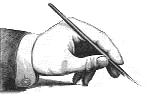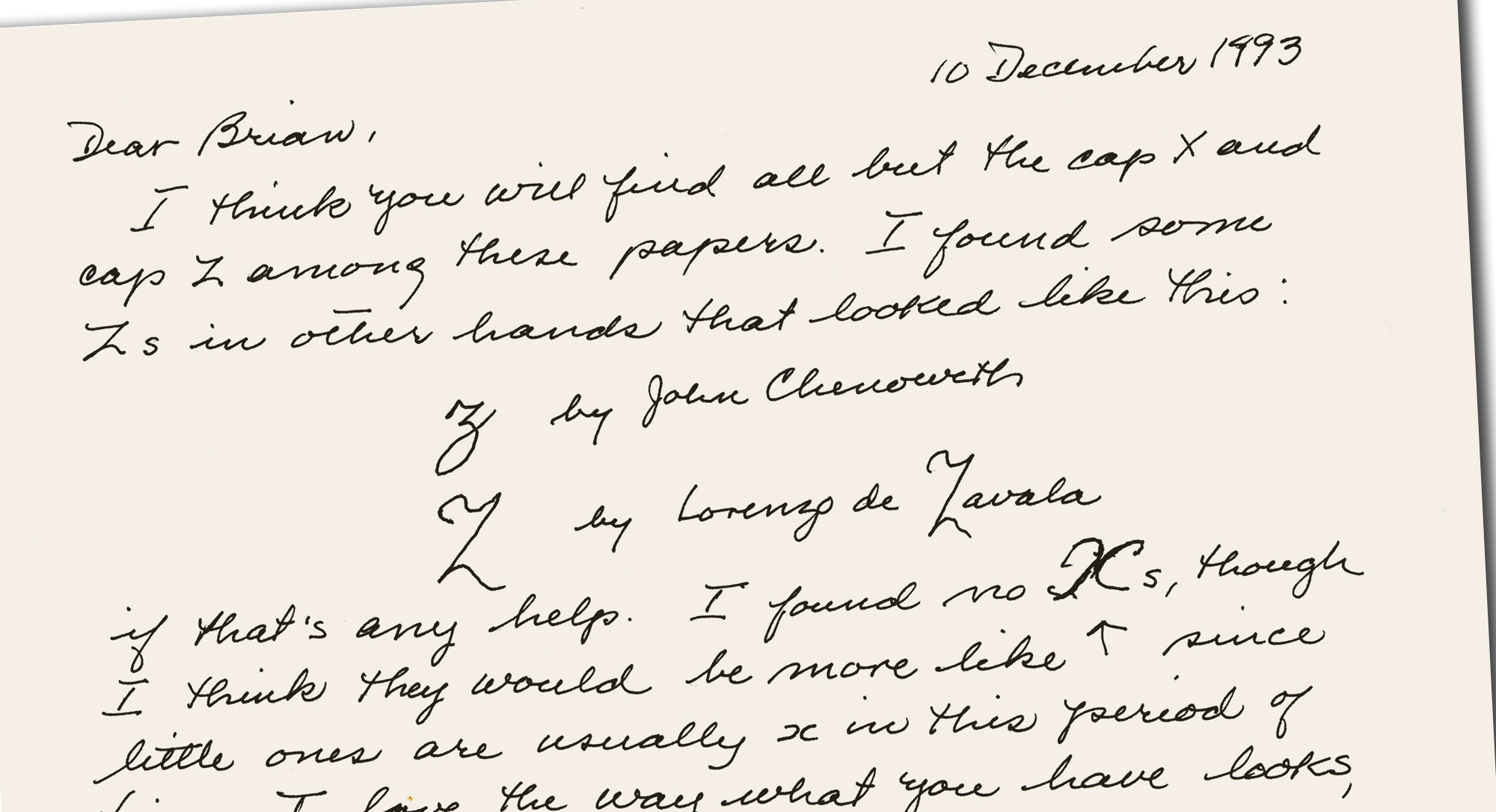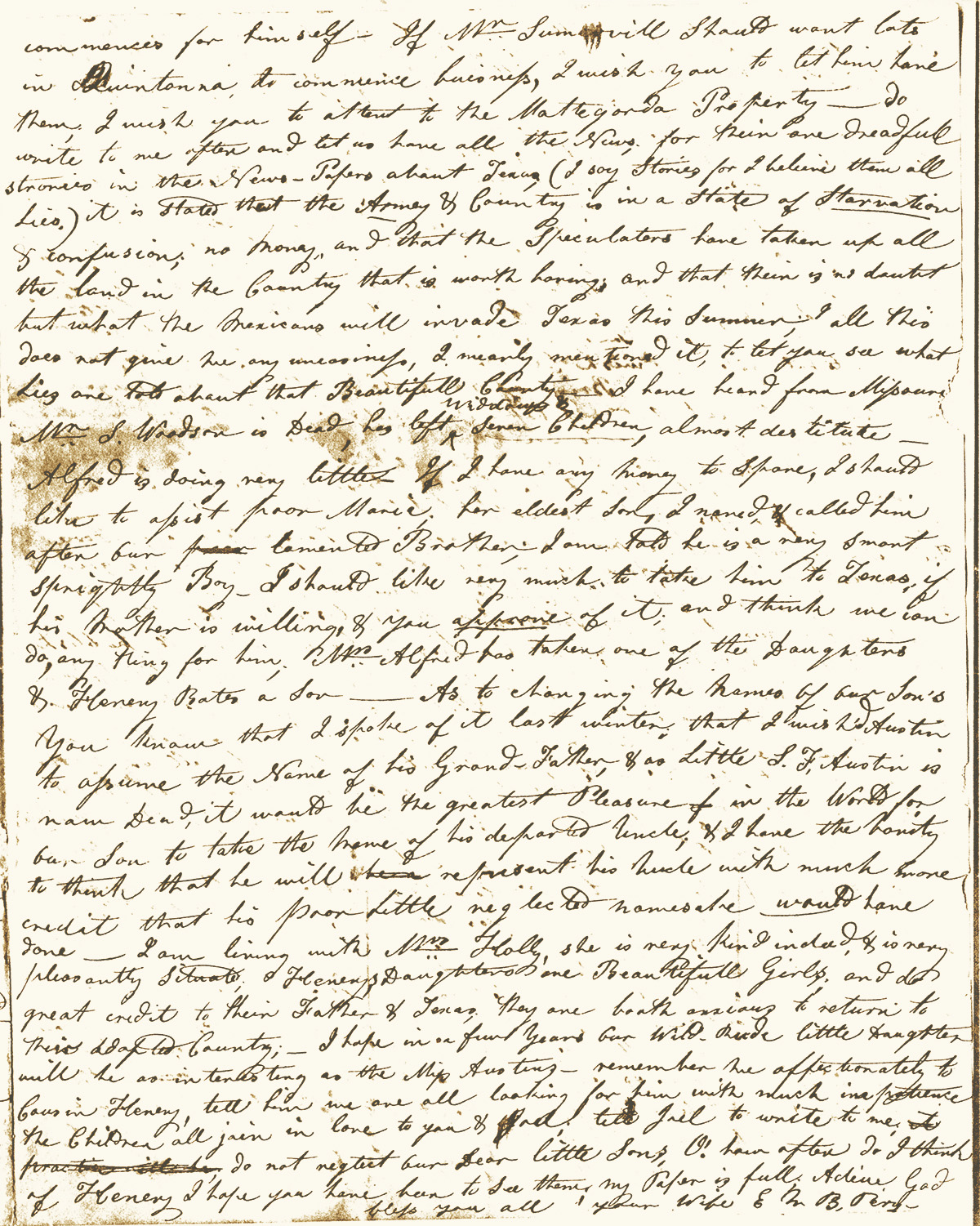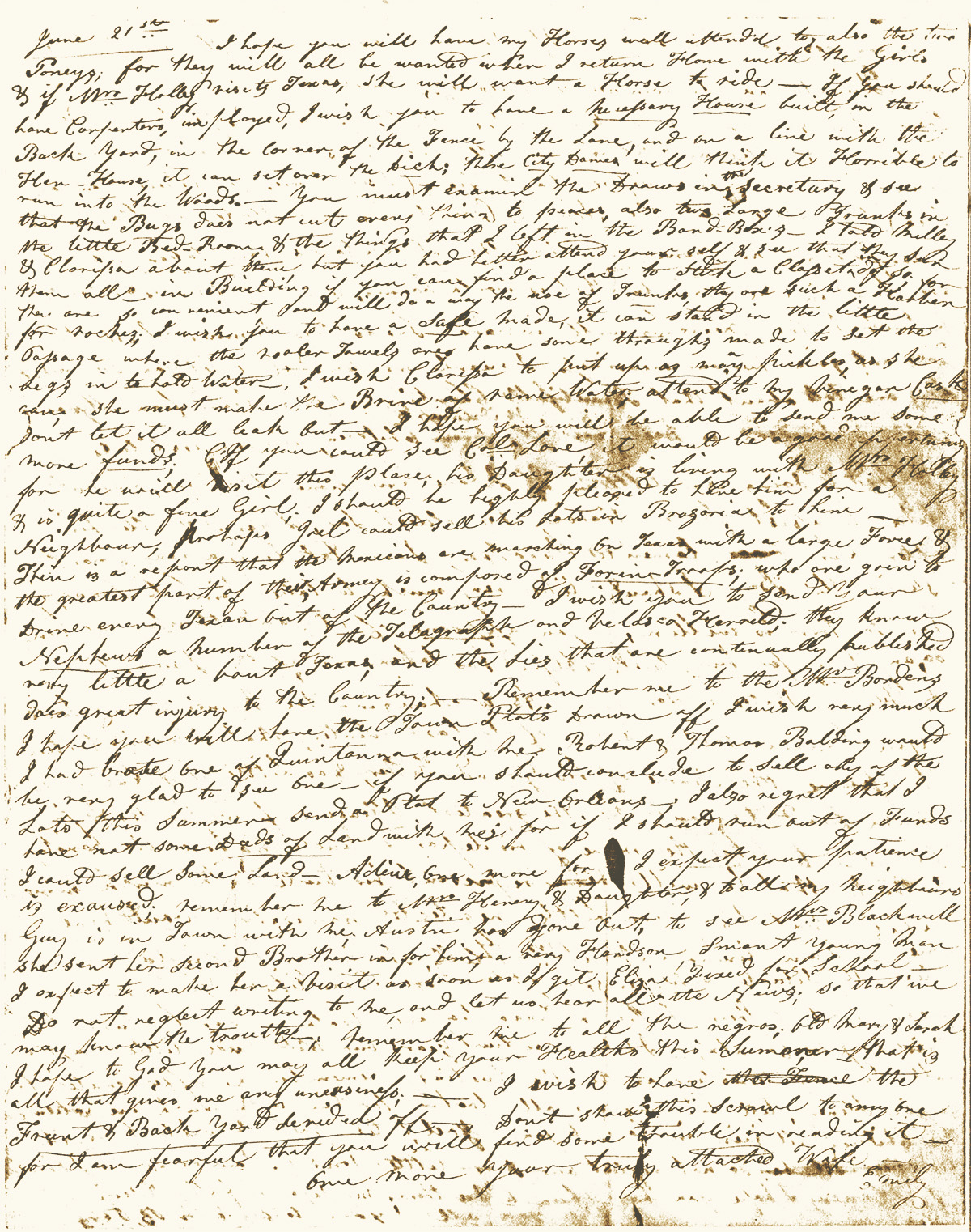 |
 |
 |
 |
|
|
 |
 |
 |
 |
 |
 |
 |
 |
 |
|
|
 |
 |
 |
 |
 |
 |
 |
 |
 |
 |
 |
 |
 |
 |
 |
 |
|
|
 |
 |
 |
 |
 |
 |
|
|
 |
The text face used here (as well as elsewhere) is Broadsheet™. The home page letters are set in Emily Austin™ & Lamar Pen™. All typefaces referenced on this website— Abigail Adams™, American Scribe™, Antiquarian™, Antiquarian Scribe™, Attic Antique™, Austin Pen™, Bonhomme Richard™, Bonsai™, Botanical Scribe™, Broadsheet™, Castine™, Douglass Pen™, Emily Austin™, Geographica™, Geographica Hand™, Geographica Script™, Houston Pen™, Lamar Pen™, Military Scribe™, Old Man Eloquent™, Remsen Script™, Schooner Script™, Terra Ignota™ & Texas Hero™ (as well as all other fonts in the Handwritten History™ Bundle)—are the intellectual property of Three Islands Press (copyright ©1994–2015). For site licensing contact: Three Islands Press P.O. Box 1092 Rockport ME 04856 USA (207) 596-6768 info@oldfonts.com |
|
|
|
 |
 |
 |
|
|
 |
 |
 |
|
Posts Tagged ‘letter-writing’
Sunday, July 23rd, 2017
 My own peculiar hybrid of printing and cursive. We humans are lazy. We’re always looking for a shortcut, an easier method, a faster way. We aspire to achieve a sort of wizardry, the ability to change our environment with a thought, a word, a wave of our hand. Witness Amazon Echo, Google Home, Apple HomePod—our wish is their command.
Trouble is, the easiest way is rarely the most rewarding. If I’d brought home a store-bought birdhouse instead of building one myself, the first flight of those fledglings wouldn’t have thrilled me so. If I planned my bicycling routes to avoid all hills, I wouldn’t have such an excellent resting heart rate. If I’d decided to stay cozy instead of hiking that hill in a snowstorm, I would’ve missed that Snowy Owl.
Recently I stumbled on a blog post whining about a growing interest in preserving the “lost art” of cursive handwriting. In this world of swift, silent keyboards, the blogger thought it crazy that anyone would want to revert to such a slow, tedious, old-fashioned mode of communication. “We have machines to do this stuff for us now,” he wrote. Of course, this blogger’s (rather ill-written) diatribe reminded me of a slew of arguments in my case for cursive. Here are three.
 Detail of a handwritten letter from my ma. Purposefulness
Making time to put pen to paper slows your thought processes, giving you time to edit those sentences before you write them down. Without the ease of digital deletion, you tend to get more words right, first time. Because you know ahead of time that the task will take a while, you’re not so prone to speeding headlong through your composition. A dashed-off email is a completely different beast from a handwritten letter: the act of writing by hand is far more contemplative, more deliberate. You’ll find it more relaxing, too, and will be happier with the result—that is, at least, my well-considered opinion.
 A page of Stephen F. Austin’s prison diary. Personalness
Write a letter by hand, put it in an envelope, address the envelope, and send it to a friend or loved one through the U.S. Mail. You know, the way they used to do in bygone days. I guarantee your recipient will be thrilled to find an old-style letter in their pile of computer-generated snail mail—especially if this person recognizes your handwriting. And chances are good (if you’re like me, anyway) that your handwritten letter will become a keepsake, outliving even you and your friend or loved one. I have scores of handwritten letters from my mother (an epistolary champion who eschewed newfangled word processors), but only a handful from my dad (an early computer enthusiast).
Playfulness
If you’re still unconvinced, what better way to send private messages to your intrigue-loving kids than by teaching them to read and write in cursive? Few these days will manage to decipher your secret code. (And your kids will forever be able to read those old family keepsakes without having to consult an expert.)
Even if you don’t mind cutting corners now and then, consider this: using cursive actually takes less time than printing—now considered “handwriting” by most people who still use pens and pencils.
Update on Austin Pen
The particular penmanship I’ve been studying these days, of course, belonged to Stephen F. Austin. Slowly and surely, letter by letter, Austin Pen takes shape. And I’m excited to be creating an alternate “blot” alphabet—one that’ll replicate the look of an over-inked pen. I’m still deciding whether to add this as an OpenType stylistic alternate or a separate font. Stay tuned!
Miscellanea
» A graphologist claims to be able to tell whether you’re a Great Briton.
» Read a thoughtful, lovely tribute to the charm of a handwritten letter.
» Get a look at Thomas Jefferson’s original draft of the Declaration of Independence.
» Huzzah! for the “groundswell of support” for bringing back cursive.
» Here’s news of some interesting old manuscripts discovered in New Zealand.
» I’m inevitably moved by any celebration of handwritten communication.
Tags: cursive, handwriting, handwriting instruction, handwriting is cool, handwritten letters, legible handwriting, letter-writing, penmanship, personal letters, personalness, playfulness, purposefulness, secret code, thoughtfulness, written communication
Posted in 19th Century, 20th Century, 21st Century, Communication, Cursive, Education, Graphology, Literacy, Longhand, Old Letters, Penmanship, Ruminations, Type Design | No Comments »
Thursday, November 5th, 2015
 Portrait of a Man Trimming His Quill (Rembrandt, 1632). Do you know the term “penknife”? Did you know that a penknife—far from the small folding pocketknife we might think of today—once had a razor-sharp, fixed blade and was used for shaping (or reshaping) the tips of quills into nibs for dipping in ink? In fact, a number of artists through history thought this small task of writers and record-keepers noble enough to preserve on canvas.
But mostly the sharpening of pens happened much as the pruning of fingernails—a small, routine, uncelebrated chore peripheral to important business at hand.
Important business at hand (moving house and office) has kept me from updating this little penman’s journal for several weeks. My apologies. But I’ve thought of something you might like to read: a letter from 1837, written by Emily Margaret Austin Perry—after whose hand I made the font Emily Austin. In particular, a letter she wrote home to her husband, James Franklin Perry, on 19-21 June 1837, while away from Peach Point Plantation, Texas.
 Emily Margaret Austin Perry. Below are scans of her letter’s four pages, each followed by a literal transcription of the words it contains.
Emily’s letter gives a snapshot view of Texas and the South in that year. Her penmanship gives a hint into the kind of focused, determined woman she was. (Like most letter-writers of the period, Emily cared less about spelling than about getting her point across.) And despite the startling evidence that the Perrys were slave-owners, her words do tend to support the assertion of Rutherford B. Hayes (who visited Peach Point Plantation in 1848) that Emily was “an excellent motherly sort of woman, whose happiness consists in making others happy.”
Note: The “B” in “E. M. B. Perry” stands for “Bryan,” after her first husband, James Bryan, who died in 1822.
 Emily Austin Perry’s letter, page 1. Lexington June 19th 1837
My Dear Husband
I have just received your truly welcome letter, which was a source of great pleasure to me by 7 June N. Orleans—for I had began to feal great anxiety to hear from you; I hope long before this comes to hand, you will have arrived safe at home; my Health is very much as it was, but think it will improve, when my mind is more at ease; about the Children; Eliza gives me a great deal of Trouble, she is so very rude and impolite; that she keeps me in a Fever all the time; and with all; so very hard to manage; —I shall start her to School to morrow; to a Mr. Ward; (on trial) he is an Episcopal Clern he, several years ago resided in St. Louis. I know his Correcton very well; and he is well calculated to manage such a Disposition as Eliza’s it is uncertain wheather he will receive her as a Boarder If I can git her into Mr. Wards Family for a year Mrs Holly thinks that it will be the best School in the State, he has agreed to receive her, on trial; for a short time; and if Eliza Should happen to please him, prohaps I may prevail on him to Board her, for a Year—, She has taken one Lesson in Dancing, & I have Spoken to a musick-master to teach her in that branch I find that Eliza will require so much attention; (for her Head is not well) and is in want of so many articles of Clothing; that I have concluded to remain with her un till I go to Missouri, & have given up my trip to Pennsylvania; for indeed, I am tiard of travling & long to be at Home
 Emily Austin Perry’s letter, page 2. Guy will leave in a Week for Kenion Collage; in Company with a Mr. Waddel and two other Young Lads, that are going to the Same School. Mr Waddell is a Gentleman that I became acquainted with on board of the Steam-Boat; he is going on to Washington City. I have consented to let Austin go with him; he leaves his Family in this Place; he expects to be gone Six Weeks; I think the Journey will be of great advantage to Austin; besides having an oppertunity of travling with a Gentleman of information & Talence—the greatest wish that I have in this world, is that my Children should have every advantage that I have the Power of giving them—I am Sorry that Col. Bees Draft was not paid, but am not disapained; for their never was the like Seen, nothing taulked of but the Hard Times; the Clergey are proclaiming from the Pulpit the distress of the Country—&C.&C.—I have by me at this time a bout Seven Hundred Dollars; Austins & Guys expences will have to come out of it—their is still five Hundred Dollars to draw on the Letter of Credit; in Louisville; If you can sell any of my land, do so; for I wish very much to Buy me a Negro Girl, when I return I shall remain hear un till the first of September; but you will know of my movements, for I shall write every Week—and you must do the same, and in the meantime; if their is no likelihood of the Countrys being invaded again, make every exertion to have the two Rooms Put up by the time I return, for I expect to bring quite a Family back—I hope you will have the Garden well attented to, & the Yard inclosed as we spoke of—do not neglect having the Graves Poled in & let Simon White-Wash them; if you do not have them painted I also wish you to make a trip into Coles Settlement, and attend to the Land in that part of the Country—You must be very industrious and have every thing under way as fast as possible; for I wish you to meat me in New Orleans, by the first of November—for I wish Austin to spend a Winter in that City in Some, business House; before he
 Emily Austin Perry’s letter, page, 3. commences for himself—If Mr. Sumvill Should want lots in Quintonna, to commence business, I wish you to let him have them, I wish you to attent to the Mattegorda Property—do write to me often and let us have all the News; for their are dreadfull stories in the News-Papers about Texas; (I say Stories for I believe them all Lies.) it is stated that the Armey & Country is in a State of Starvation & confusion; no money; and that the Speculaters have taken up all the land in the Country that is worth having; and that their is no doubt but what the Mexicans will invade Texas this Summer; & all this does not give me any uneasiness, I mearly mentioned it to let you see that Lies are told about that Beautifull Country—I have heard from Missouri Mr S. Woodson is Dead, hes left Widdow & Seven Children, almost destitute—Alfred is doing very little—If I have any money to Spare, I should like to assist poor Marie; her eldest son, I named & called him after our lamented Brother; I am told he is a very Smart Sprightly Boy—I should like very much to take him to Texas; if his Mother is willing, & you approve of it; and think we can do, any thing for him; Mrs. Alfred has taken one of the Daughters & Honey Bates a Son—As to changing the names of our Son’s You know that I spoke of it last winter; that I wish’d Austin to assume the Name of his Grand-Father, & as Little S. F. Austin is now Dead, it would be the greatest Pleasure in the World for our Son to take the name of his departed Uncle; & I have the Vanity to think that he will represent his Uncle with much more credit that his poor Little neglected namesake would have done—I am living with Mrs. Holly, she is very kind indeed, & is very pleasantly Situated; Henery’s Daughters are Beautifull Girls, and do great credit to their Father & Texas; they are boath anxious to return to their adopted Country;—I hope in a few years our Wild Rude little Daughter will be as interesting as the Miss Austins—remember me affectionately to Cousin Henery, tell him we are all looking for him with much impatience the Children all join in love to you & Joel; tell Joel to write to me; do not neglect our Dear little Sons; O! how often do I think of Henery I hope you have been to see them; my Paper is full. Adieu God bless you all your Wife E. M. B. Perry—
 Emily Austin Perry’s letter, page 4. June 21st
I hope you will have my Horses well attended to, also the two Poneys; for they will all be wanted when I return Home with the Girls & if Mrs. Holly visits Texas, she will want a Horse to ride—If you should have Carpenters, imployed, I wish you to have a Necessary House built; in the Back Yard, in the corner of the Fence by the Lane, and on a line with the Hen-House, it can set over the Dich; these City Dames will think it Horrible to run into the Woods.—You must examin the Draws in the Secretary & see that the Bugs does not cut every thing to peaces, also two Large Trunks in the little Bed-Room & the things that I left in the Band-Box’s—I told Milley & Clarissa about them, but you had better attend your self & see that they seen them all—in Building if you can find a place to Stick a Closset in do so for these are so convenient, and will do a way the use of Trunks, they are such a Harber for roches; I wish you to have a Safe made, it can stand in the little Passage where the rooler Towels, are have some throughs made to set the legs in to hold Water—I wish Clarissa to put up as many pickles as she can; she must make the Brine of raine Water; attend to my Vinegar Cask don’t let it all leak out—I hope you will be able to send me some more funds; If you could see Col Love, it would be a good opportunity for he will visit this place, his Daughter is living with Mrs. Holley & is quite a fine Girl; I should be highly pleased to have him for a Neighbour, prohaps Joel could sell his Lots in Brazoria to him—Their is a report that the Mexicans are marching on Texas with a large Force; & the greatest part of their Armey is composed of Forin-Troops; who are goin to Drive every Texan out of the Country—I wish you to send your Nephews a number of the Telegraph and Velasco Herreld; they know very little a bout Texas; and the Lies that are continually published does great injury to the Country;—Remember me to the Mr Borders I hope you will have the Town Plots Drawn off I wish very much I had braute one of Quintonna with me; Robert & Thomas Balding would be very glad to see one—if you should conclude to Sell any of the Lots this Summer send a Plot to New Orleans—; I also regret that I have not some Deeds of Land with me; for if I should run out of Funds I could sell Some Land—Adieu, One more for I expect your patience is exaused; remember me to Mrs. Henry & Daughter, & to all my neighbours Guy is in Town with me; Austin has gone out, to see Mrs. Blackwell she sent her second Brother in for him; a very Handson Smart Young man I expect to make her a Visit as soon as I git Eliza Fixed for School—Do not neglect writing to me, and let us hear all the News; so that we may know the trouthe—; remember me to all the negros; Old Mary & Sarah I hope to God you may all keep your Healths this Summer—that is all that gives me any uneasiness; —I wish to have the Frunt and Back Yard devided off—Dont show this Scrawl to any one for I am fearful that you will find some trouble in reading it—
Once more your truly attached Wife
Emily
(My copy of this letter came courtesy of the Briscoe Center for American History, Barker Texas History Collection.)
Miscellanea
» These days if you want to write a letter with a fine ink pen, you could spend $1,000.
» That old library card catalog has pretty much gone extinct—and with it instructions to use legible cursive.
» Another argument about how handwriting is good for the brain.
» And the value of penmanship won rousing support in a Taunton School Committee candidate’s forum.
» On the other end of the spectrum, meanwhile, there’s some shaming going on.
» A century-old love letter with a “twirly” style of writing turns up under some Irish floorboards.
» Finally, here’s a little how-to—you know, in case you need to brush up on your handwriting skills.
Tags: art of handwriting, cursive, Emily Austin font, Emily Austin Perry, handwriting, history, ink pen, letter-writing, nib pen, old letter, Peach Point Plantation, penknife, penmanship, quill pen, Republic of Texas, spelling, Texas history
Posted in Cursive, Historical Figures, History, Old Letters, Penmanship, Specimens | No Comments »
|
|
|
 |
|
 |
|
 |
 |